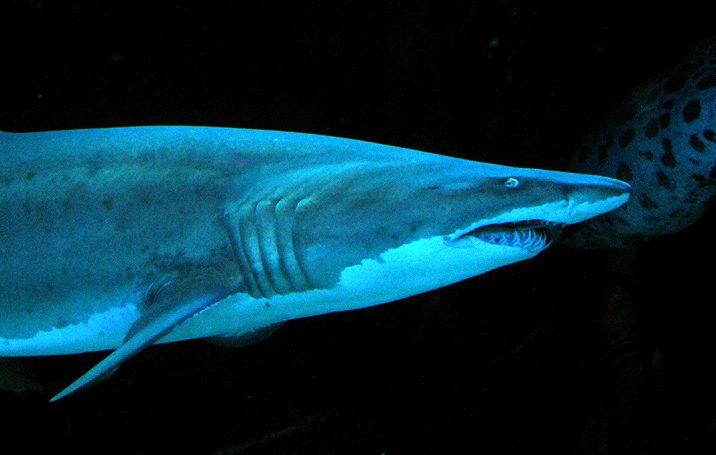
In the short period since Donald Trump was elected commander-in-chief of the United States of America, the call for, and attempt to facilitate, closer U.S.-China co-operation that characterised the Obama administration has been placed under strain. Beijing and Washington are currently embroiled in a tit-for-tat tariff war, and contrary to the sentiment expressed in a 2009 U.S. Centre for Strategic & International Studies (CSIS) report that ‘Virtually no major global challenge can be met without U.S.-China co-operation’, a war of words about the size of the US trade deficit with China and what Trump sees as other unfair trade practices is now hampering the possibility of reaching agreement on how to resuscitate the halting progress of denuclearisation in North Korea.
In a trademark Trump tweet, the president claims that China is no longer playing ball in this globally beneficial endeavour because of ‘our much tougher trading stance’. In response, Beijing denounced his claims as ‘contrary to basic facts’ and his decision to cancel the secretary of state’s planned visit to North Korea as ‘irresponsible’.
Amidst these rising tensions, however, Hollywood continues to present an idealised image of harmony between China and the U.S.(-West). August saw the release of The Meg, a big-budget B-movie about a 75-foot-long prehistoric shark with a taste for Chinese beachgoers and the American-led team that is charged with hunting it down. Co-starring Jason Statham and Chinese fan-favourite Li Bingbing, the movie, which is exceeding box-office expectations, is the latest in a growing line of Sino-American co-productions that are prepared to aid the PRC with an ambitious task of its own, namely the improvement of China’s image in the Western(ised) world.
Reflecting patterns identified in my contribution to the volume Popular Geopolitics: Plotting an Evolving Interdiscipline, the monumental rise of China’s film market is incentivising Hollywood to make amends for its longstanding perpetuation of anti-Chinese prejudice. The dream factory always tended to do what is easy, relying on stereotypes about foreign peoples and polities that implicitly nourish a US-Western perspective, but market forces are urging the Hollywood majors to adopt a more ecumenical understanding of global political space. Recently, numerous American-led co-productions have sought to re-frame China in an affirmative or approving light, creating a framework in which popular ideas about China as belonging to the ‘Orient’, which is to say as belonging to a geopolitical region the U.S.-West considers dangerously different and threatening to its global authority, can be contested rather than reinforced and aspects of Chinese foreign policy discourse – especially Chinese strategic narratives – can be accommodated and endorsed.
Following in the footsteps of blockbusters such as Transformers: Age of Extinction (which also features Li Bingbing) and Pacific Rim: Uprising, The Meg positions China as the United States’ virtuous and primary ally in response to global threats and challenges. In The Meg’s climactic scene (spoiler alert), Statham and Li battle the megalodon in mini-subs, saving the rest of their team and the Chinese tourists in Sanya Bay. Although these and other films do at the same time deploy a variety of soft strategies to contain the impact of Chinese characters and ultimately privilege a U.S.-Western perspective (the Chinese heroes, predominantly female, are strong and capable, but never quite as much as their as their male American counterparts), they nonetheless mark a significant shift on the part of Hollywood towards a more-inclusive geopolitics that exceeds a patriotism/enemy othering binary. The scenes featuring Chinese holidaymakers on the Sanya beaches are played for a mixture of terrifying thrills and laughs, but the jokes do not come at China’s expensive. Instead of being rooted in notions of ontological difference, the humour derived from the activities of almost exclusively Chinese characters carries with it a universal tone: an overprotective but likeable mother, a fat kid whose response to almost being eaten is to suck on his ice lolly with renewed vigour, and a seafaring bride whose primary concern is for her Yorkshire terrier; a comically small dog in relation to the shark, whose name, Pippin, is one of many nods to Spielberg’s Jaws.
At the movie’s close, Statham, Li, and the rest of their team take refuge on the wedding party’s yacht in scenes that stress cultural compatibility rather than irreducible difference, friendliness rather than hostility. The Meg continues Hollywood’s courtship of the Chinese market, even flirting with the notion of a burgeoning romance between its lead characters (something that has seldom been a feature in Hollywood’s courtship of the Chinese market to this point). Whereas the relationship between Washington and Beijing appears to be backsliding into an acrimonious divorce from pragmatic co-operation, the marriage of convenience between Hollywood and China continues apace; in a marked contrast to the situation currently playing out in practical geopolitics, the U.S. and China of Hollywood’s imagination are content to make love, not war.
Further Reading on E-International Relations
- Future of Popular Geopolitics: Croatia, Affective Nationalism and the World Cup
- Plotting the Future of Popular Geopolitics: An Introduction
- The Future of Popular Geopolitics: Zombie Evolution and the Return to the Social
- Opinion – The Future of the USA-China Trade War
- Xi Jinping’s Civil Diplomacy Initiative: Origins, Purpose, and Challenges
- New Book – Mongolian Independence and the British: Geopolitics and Diplomacy in High Asia, 1911–1916